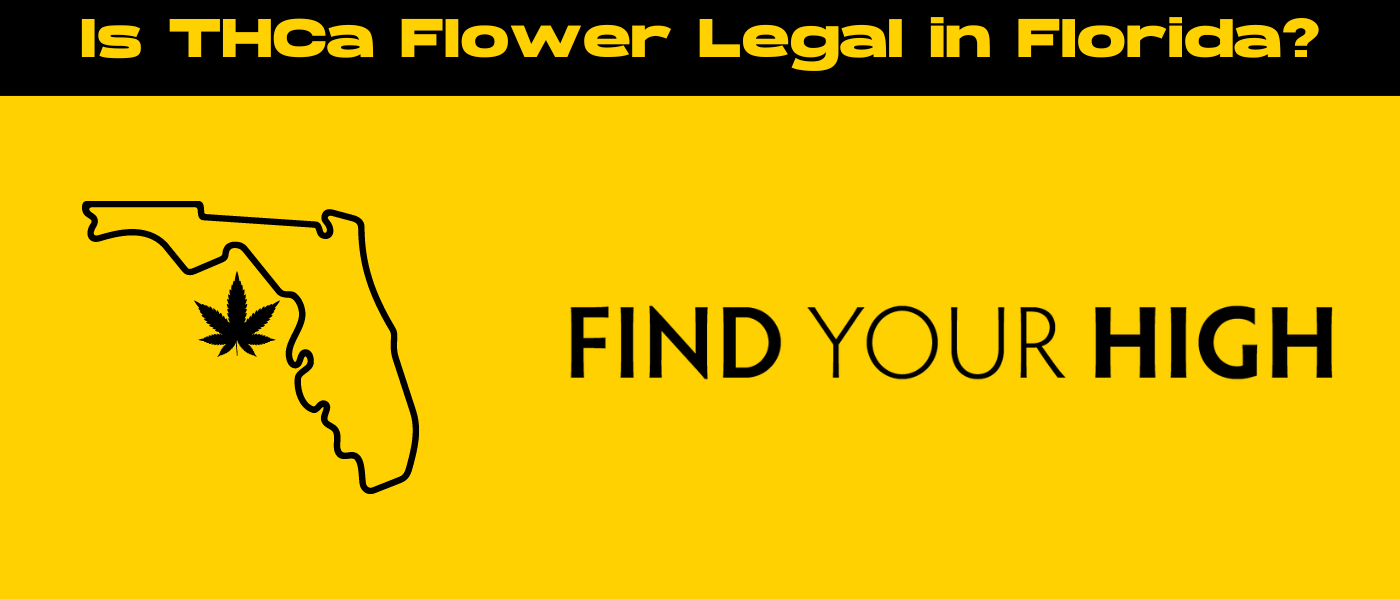Are you living in the Sunshine State and asking yourself, “Is THCa flower legal in Florida?”
You’re not alone.
Whether or not THCa flower is legal or not in Florida is a hot topic as the hemp industry continues to spread across the United States. If you’re unfamiliar, THCa, or Tetrahydrocannabinolic acid, is a non-psychoactive precursor to delta-9-tetrahydrocannabinol (THC), the primary intoxicating compound in cannabis.
When THCa turns into THC via decarboxylation, which happens when heat is applied, it’s important to grasp this difference when talking about legality — but more on that later.
In this article, we’ll dive into the nitty-gritty of THCa’s legal standing in the state of Florida, highlighting the complexities of federal law surrounding cannabis and its implications for consumers and businesses so that you’ll never have to ask, “Is THCa legal in Florida?” ever again!
Let’s begin.
What Is THCa Flower?
THCa flower refers to the raw, unprocessed buds of the cannabis or hemp plant that are rich in Tetrahydrocannabinolic acid (THCa). This compound is the acidic form of THC and does not produce the psychoactive effects typically associated with THC. It is only when THCa is exposed to heat through a process known as decarboxylation that it converts into THC, the well-known intoxicating compound. This transformation releases carbon dioxide, which occurs when the cannabis or hemp flower is heated by methods such as smoking, vaping, or cooking.
This crucial distinction is what sets THCa flower apart from THC products — it’s non-intoxicating in its natural state and requires the application of heat to alter its properties.
Consumer Interest in Hemp-Derived THCa Flower
With growing consumer education about the benefits and effects of different cannabinoids, interest in THCa flower is on the rise — and for good reason!
More people are curious about its potential for providing potential therapeutic benefits without the high associated with THC consumption. Consumers are also drawn to THCa for its raw, unprocessed form, seeking an authentic and natural product.
With the cannabis market on the rise, THCa flower is carving out a unique space with great growth potential. It’s especially popular among those who prioritize the health benefits of cannabis rather than its psychoactive effects.
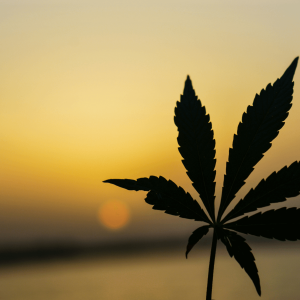
THCa and Federal Law
Now for the main topic of discussion today: Is THCa flower legal in Florida?
Short answer: Yes! Under the 2018 Farm Bill, hemp-derived THCa flower is federally legal. This is because THCa is hemp, meaning that it is non-psychoactive. With that being said, THCa can be distributed across all 50 states because it doesn’t qualify as ‘marijuana.’ Whether or not you choose to transform your THCa flower into THC is entirely up to you… consider it a loophole, free of any holes or legal haze.
Now, the legality of recreational cannabis in Florida has evolved, with medical marijuana being available to those who qualify under the state’s regulatory framework. With the passage of Amendment 2 in 2016, Florida’s medical marijuana laws permit patients with a qualifying medical condition to obtain and use marijuana for treatment.
However, despite this progressive step for medical use, recreational THC remains illegal in the state. The sale, possession, and consumption of cannabis for recreational purposes is not permitted, and such activities can result in significant legal penalties.
This clear divide in the legal status of cannabis emphasizes the current stance that Florida takes: a cautious, albeit growing, acceptance for medicinal purposes, while maintaining stringent prohibitions against recreational use.
Understanding The Farm Bill
The 2018 Farm Bill, formally known as the Agricultural Improvement Act of 2018, brought monumental changes to the cannabis industry, primarily by redefining hemp and its legal status.
This legislation distinguished hemp from marijuana based on its THC content—the psychoactive component in cannabis. For a cannabis plant to be legally classified as hemp, it must contain no more than 0.3% THC on a dry-weight basis.
As a result, this distinction means that hemp-derived products, including THCa as long as they adhere to this THC thereshold, are removed from the list of controlled substances, allowing for legal cultivation, production, and distribution.
The implications for THCa levels are pretty significant. Although THCa itself isn’t psychoactive, its legal status depends on its potential to convert into THC and whether the resulting THC level goes beyond the legal limit. This distinction has paved the way for products like THCa flower to be sold and used legally, as long as they stay within that critical percentage.
Ultimately, the 2018 Farm Bill was a major milestone for both the hemp industry and people’s access to different cannabis products.
Legal Hemp Criteria in Florida
In Florida, they take federal guidelines seriously when it comes to growing and selling hemp and its derivatives, like THCa.
The state’s hemp legislation follows the 2018 Farm Bill, which means locally grown hemp must have less than 0.3% THC on a dry-weight basis. This is the key factor in distinguishing hemp from marijuana, which is still tightly regulated unless used for medical purposes.
Florida’s THCa Laws: Understanding Hemp Legistlation
Florida’s legislation emphasizes the need for rigorous testing and certification to ensure compliance with THC levels.
The state has established a comprehensive regulatory framework to oversee hemp cultivation and production, along with the marketing of hemp and its related products.
Hemp operators must be licensed, and their products are subject to random testing to confirm THC concentrations.
Acceptable Levels of THCa and THC
According to Florida THCa laws, it’s totally fine to have THCa in hemp-derived products because it’s recognized as non-psychoactive. But here’s the thing, the total THC (which includes delta-9 THC and THC derived from heated THCa) shouldn’t go above the critical 0.3% limit. This is what separates a legal hemp product from a controlled substance.
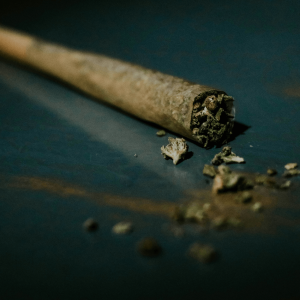
THCa vs. Legal Definitions of Hemp
When talking about THCa and its legality, it’s important to understand how it’s measured according to the legal definitions of hemp.
As mentioned, hemp, by law, can only contain a THC concentration of no more than 0.3% on a dry-weight basis.
THCa, although not initially intoxicating, poses an interesting challenge when it comes to applying this rule because it can turn into THC through decarboxylation. The process of decarboxylation typically involves the application of heat, which catalyzes a chemical reaction where THCa drops its carboxyl group and transforms into the psychoactive THC.
This idea has sparked a “loophole” debate as to whether THCa products that contain THCa but not delta-9 THC should be considered legal, given the potential for conversion post-purchase. Critics say these products dodge the intent of the law, but supporters argue that they actually meet the legal definitions when they’re sold.
The dynamic nature of cannabinoids like THCa under legal scrutiny reflects the evolving landscape of cannabis legislation and the ongoing conversation between regulators, consumers, and industry stakeholders.
THCa Flower and Drug Tests
The current limitations of drug tests often fail to distinguish between legal hemp and marijuana. It’s a complex situation that highlights the ongoing struggles in this field.
Traditional testing methods primarily focus on detecting the presence of delta-9 THC—the main psychoactive component—yet they may not distinguish between federally legal cannabis and recreational THC, which is not legal according to the federal government.
Ultimately, this presents a bit of a tricky situation when individuals are found in possession of THCa flower, which is chemically distinct from THC yet may convert into THC upon heating. As such, law enforcement officers, equipped with current drug testing technology, face the task of interpreting these regulatory nuances.
Needless to say, it’s pretty obvious that we need some improvements in field-testing technology and a more defined legal framework to make sure legislation actually works in practice.
How To Buy THCa Flower in Florida
In Florida, consumers looking to get their hands on some legal THCa flower have certain avenues to explore because of the legal differences between hemp and marijuana. One option that’s gaining popularity for being compliant and offering a variety of products is to purchase from online hemp retailers like Hyperwolf.
Hyperwolf’s website is dedicated to providing hemp-derived products, including THCa flower that conforms to the federal standard of containing less than 0.3% THC on a dry-weight basis. Purchasing from such a platform can give consumers peace of mind that they are within legal boundaries.
For those seeking access for medicinal purposes, Florida’s medical marijuana program is the way to go. In fact, patients with qualifying conditions can apply for a medical marijuana card, allowing them to purchase regulated products, including THCa flower, from state-licensed dispensaries.
Medical marijuana cards also authorize patients to legally possess and use cannabis for therapy, ensuring they have access to the full spectrum of beneficial cannabinoids for their health needs.
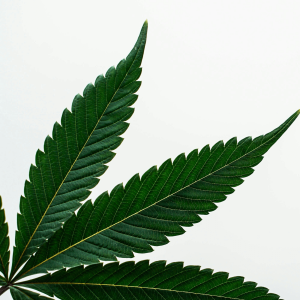
Quality Control and Lab Testing: Ensuring Safety and Legality
In the booming hemp market, it’s crucial to prioritize quality control and lab testing to guarantee consumer safety and meet regulatory requirements. Third-party lab testing plays a vital role in this process by providing an unbiased evaluation of THC and THCa levels in hemp products.
These independent labs use advanced chromatography techniques to accurately measure cannabinoid levels, making sure they stay within the legal limits set by the government.
The Importance of Third-Party Lab Testing
Third-party lab testing is not only about legality, but it also shows a commitment to transparency and quality. Nowadays, consumers are more knowledgeable and want assurance that the products they use are safe, free from harmful substances, and have the advertised cannabinoid levels.
Independent labs that have no vested interest in the hemp industry can provide that assurance by issuing certificates of analysis (CoAs) that provide detailed information about the product’s chemical composition.
Certification Processes for THC and THCa Content
To maintain trust, certification processes go through rigorous and repeated testing at different production stages—starting from raw biomass to the final product. This ensures consistency and reliability in every batch.
Plus, licensed producers have to navigate a complex web of regulations that require accurate and meticulous documentation, often with the help of cutting-edge technology to trace and verify product quality throughout the entire supply chain.
Together, these practices elevate the industry standard, creating a safer marketplace and well-informed consumers.
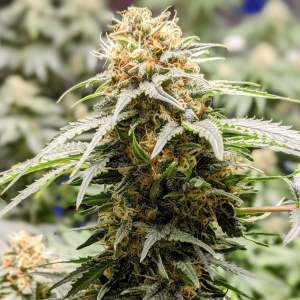
The Future THC Legal Status in Florida
The constantly changing landscape of THC’s legal status in Florida brings both challenges and hope for supporters of cannabis reform.
Recent legislative changes, such as allowing smokable medical marijuana and ongoing discussions about full legalization, show the evolving perspective toward cannabis use in the Sunshine State.
Recent Legislative Changes and What They Indicate
In recent legislation, Florida has shown a willingness to loosen some restrictions on THC-containing products, pointing to a broader acceptance of cannabis for medicinal use. This has been a significant step away from the state’s historically stringent stance.
The state government is recognizing the therapeutic benefits of cannabis, with the increased accessibility and approval of smokable marijuana in medical scenarios. It’s a positive step towards acknowledging the potential of cannabis.
Factors That Could Influence Future Legality
There are a few things on the horizon that could affect the future legality of THC in Florida:
- Public Opinion and Voter Initiatives: As national attitudes towards cannabis become more favorable, Florida’s residents are also showing significant support for marijuana legalization through various polls and potential voter initiatives.
- Economic Incentives: The economic benefits seen in states where cannabis is legal could sway Florida’s decision-makers. Legalization could mean substantial tax revenue, job creation, and economic growth for the state.
- Legal Precedents in Other States: Florida often looks towards legal developments in other states as potential models for its own legislation. As more states move to legalize cannabis for both medicinal and recreational use, Florida may follow suit.
- Federal Regulations: If cannabis is federally decriminalized or rescheduled, it could open the door for statewide legalization, making it easier to buy and enjoy cannabis products legally.
With the ongoing discussion about THC and cannabis, it’s pretty clear that Florida is at a crossroads. The next few years are bound to bring more debate and some big decisions that could completely transform the cannabis scene in the Sunshine State.
Conclusion
In conclusion, the legality of THCa flower in Florida encapsulates an intricate balance between market demand, medical advocacy, and evolving legal status.
With online hemp retailers like Hyperwolf providing federally compliant products, and Florida’s medical marijuana program catering to patients, the state is navigating a shift towards a more acceptant view of cannabis.
The essential role of third-party lab testing for safety, purity, and regulatory compliance, alongside the intricate certification processes, demonstrates a maturing industry committed to consumer trust.
As the legal landscape keeps evolving, reflecting broader social and economic shifts, it’s important for consumers to stay informed and responsibly engage with these products. By understanding the legal status and consequences, especially in this dynamic phase of legislative evolution, the Florida community can advocate for and adapt to changes that shape the future of cannabis while being accountable and vigilant.
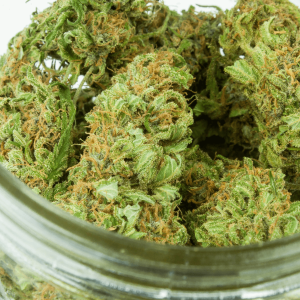
Frequently Asked Questions
1. Is THCa sold in Florida?
Yes, THCa is sold in Florida, primarily through licensed online hemp retailers, such as Hyperwolf.
2. In what states is THCa legal?
THCa is federally legal in every state under the 2018 Farm Bill.
3. Can THCa cause a high?
THCa itself does not cause a psychoactive high because it is a non-psychoactive cannabinoid. However, when heated, THCa converts to THC (delta-9-tetrahydrocannabinol), which is psychoactive and can induce a high.
4. Does THCa show up on a drug test?
Most standard drug tests are designed to detect the presence of THC, not THCa. However, since THCa can convert into THC through decarboxylation, which may happen before or during the testing process, there’s a possibility that THCa could indirectly cause a positive drug test result for THC.

 Rewards
Rewards



